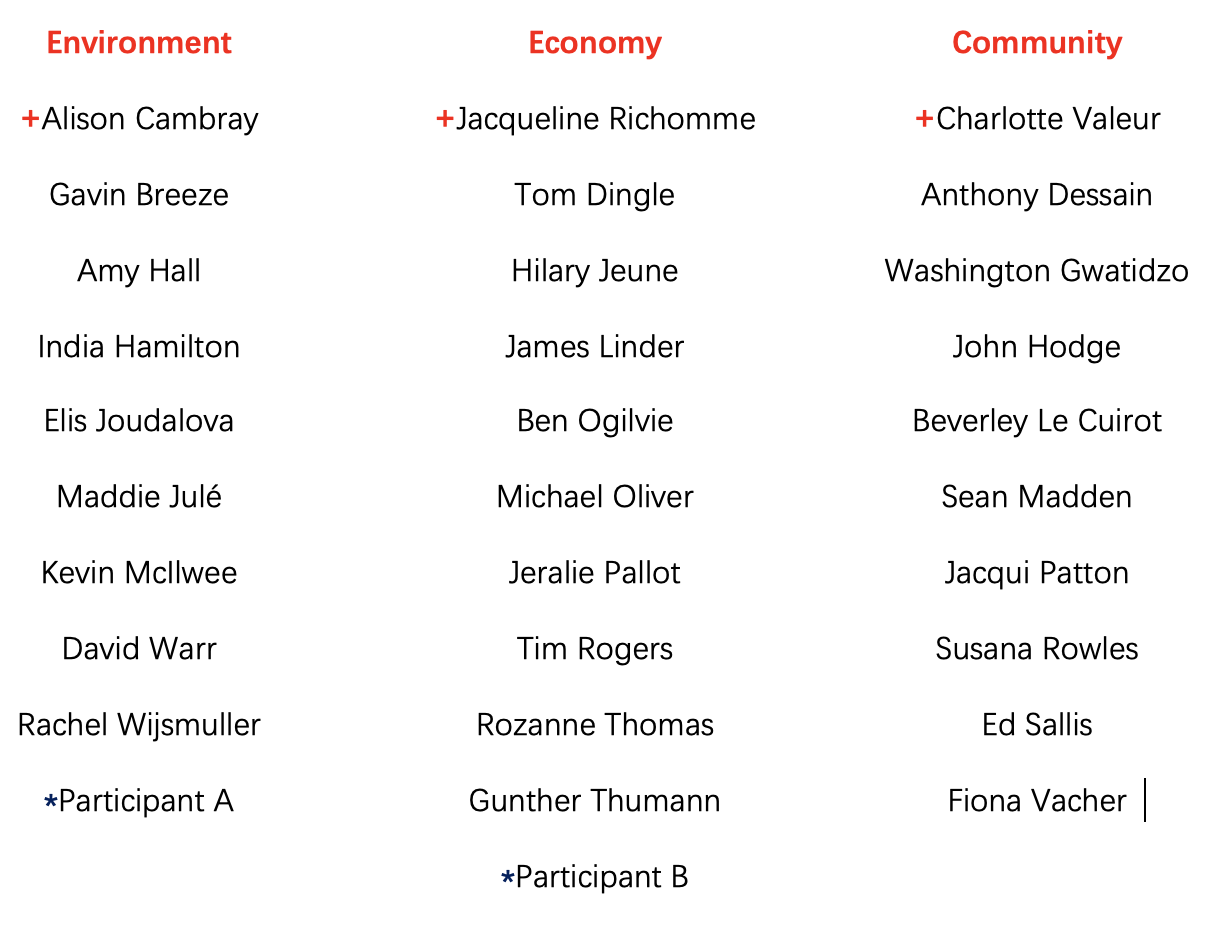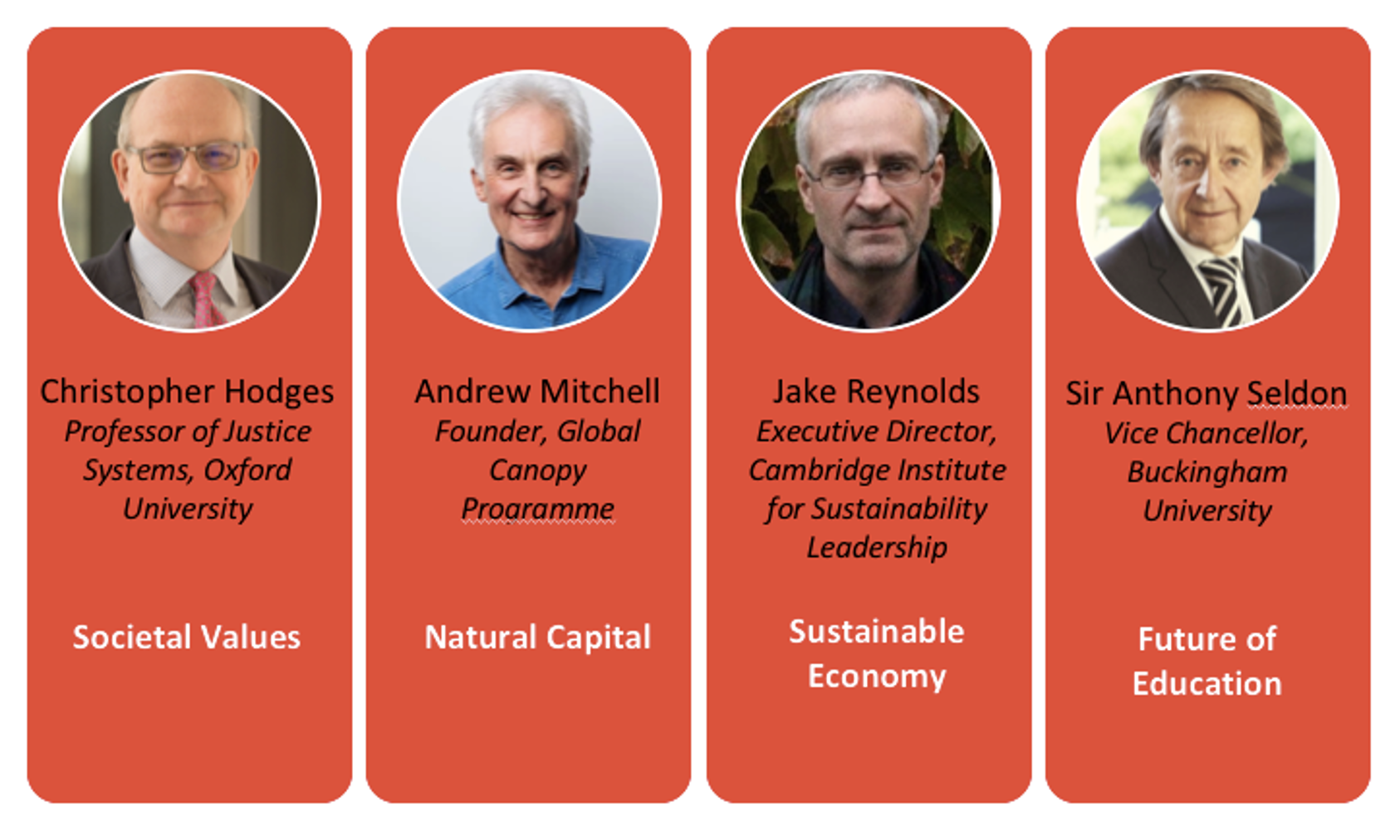
Part 2: What future do we want?
Friday 07 May 2021
Today, Express continues its series with the Jersey Policy Forum looking at how islanders want Jersey to develop in the future.
How does the island become "a prosperous and resilient island, leading in sustainable and circular practices, where all people, communities and businesses can thrive in harmony with each other and within Jersey’s unique and beautiful natural environment"?
With the elections next year, the Jersey Policy Forum (JPF) attempted to find out, and the results were published in a report called 'The Future We Want' last week.
In a series of three articles, continuing today, Express has asked Gailina Liew, the Executive Director of the JPF to set out their findings. Next year we all go to the polls to elect our next government - what will the candidates have to say about the following issues?
Part 2 – Tapping into Islanders’ collective ambitions and expertise
For the next step in JPF’s citizen policy lab process, a wide range of people were invited to participate in three working committees, collectively spanning the three pillars of sustainable development as reflected in Jersey’s Performance Framework rolled out in early 2020. The 31 participants ranged in age from 17 to over 70 and were generous in their sharing of a broad diversity of knowledge, expertise and lived experiences.

Participants defined an ambitious vision for Jersey to be an exemplar as...
...a prosperous and resilient island, leading in sustainable and circular practices, where all people, communities and businesses can thrive in harmony with each other and within Jersey’s unique and beautiful natural environment.
Four external experts were invited to support the participants in their discussions to define specific policy objectives to support this ambitious vision.

The collaborative outputs from participants were distilled into 8 Policy Roadmaps that set out more than 30 specific policy targets along with recommendations for educational and fiscal policy levers, the creation of new laws/bodies and calls for more evidence and data reviews.
- Policy Roadmap 1 - Circular Economy 2035
- Policy Roadmap 2 - Net Zero Carbon 2035
- Policy Roadmap 3 - Enhance Natural Capital
- Policy Roadmap 4 - Sustainable Economy for All
- Policy Roadmap 5 - Strengthen Core Societal Values
- Policy Roadmap 6 – Education Reform
- Policy Roadmap 7 - Fair and Just Society
- Policy Roadmap 8 - Inclusive and Representative Government
Participants noted the interconnectedness of the policy targets and the need to encourage greater collaboration across silos of knowledge and activity. Participants also noted that the strengthening of core societal values and education reform as fundamental areas requiring urgent attention for a more sustainable, resilient and prosperous future.
How to strengthen and develop core societal values to bring people together in society and foster pride in Jersey as a special and unique place? Specific policy targets and recommended enabling actions included in Policy Roadmap 5 – Strengthen Core Societal Values:
- Strengthen and nurture core societal values of fellowship, belonging, connectedness and solidarity
- Create culture of giving, awareness and respect for others’ views, struggles and hardships – move away from blame culture
- Provide more support to improve English literacy to encourage more societal integration and participation
- Create and distribute “welcome pack” for all immigrants to provide information about Jersey’s government, voting rights, culture and history
- Education from earliest years to instill core societal values and connections between community, economy and environment
- Curriculum to include Jersey’s unique history, culture and society for shared understanding of place
- Broaden and deepen nursery provision (see French and other models) to provide time and space for parents to engage in more community and fellowship activities
- Explore options such as universal basic income to provide people with better opportunities for decent quality of life for themselves and their families
- Review mental health crisis care provision and create non-medicalised places of respite – separate from drug/alcohol addiction care
- Explore models to break generational cycle of deprivation/dependency on government benefits
Urgent attention is needed to redefine the purpose of education to ensure that (a) the children of Jersey have the ambition and skills to access a wider range of opportunities to support a prosperous future for themselves and for Jersey, (b) people have the opportunity to reskill and upskill throughout their life, and (c) to enhance the social capital on the island by learning from experts and leading-edge experience elsewhere. Specific policy targets and recommended enabling actions included in
Policy Roadmap 6 – Education Reform:
- Recruit best teachers / facilitators and incorporate use of technology to provide better and more relevant education
- Target highest standards of education provision and achievement – top quartile in OECD rankings
- Age 4-18 curriculum to include minimum weekly time to engage with natural environment (eg. swimming in the sea, beaches/reefs, habitats/biodiversity, etc.), learn about citizenship (eg. importance of voting, community engagement, participation, etc.)
- Mandatory second language education from primary years with additional language in secondary years
- Ensure that all secondary schools provide education to age 18
- Ensure education provision for all ages with focus on skills training in critical areas and urgent upskilling to transition to new jobs
- Focus on problem-solving, critical thinking, innovation, entrepreneurship and digital skills to challenge the status quo and find different solutions
- Finance tertiary education for all children
- Provide government vouchers or loans to accelerate upskilling and transition to new jobs arising from automation of existing jobs
- Provide grants to encourage people to pursue training on and off-island for critical areas of local need such as nursing, and social care
- All schools to publish educational attainment data against common standards
- Explore changes in early years provision to delay start of formal education to age 6, enhance nursery provision and ensure smaller class sizes
- Establish more programs with off-island universities to offer environmental and sustainability degrees / courses that focus on Jersey’s natural, agricultural and built environments (building on success of JICAS and Durrell)
The full report can be read here.
Catch up on Part 1 HERE and read Part 3 on Monday to learn more about islanders’ views of Jersey’s economy and an action plan for Jersey’s future.





